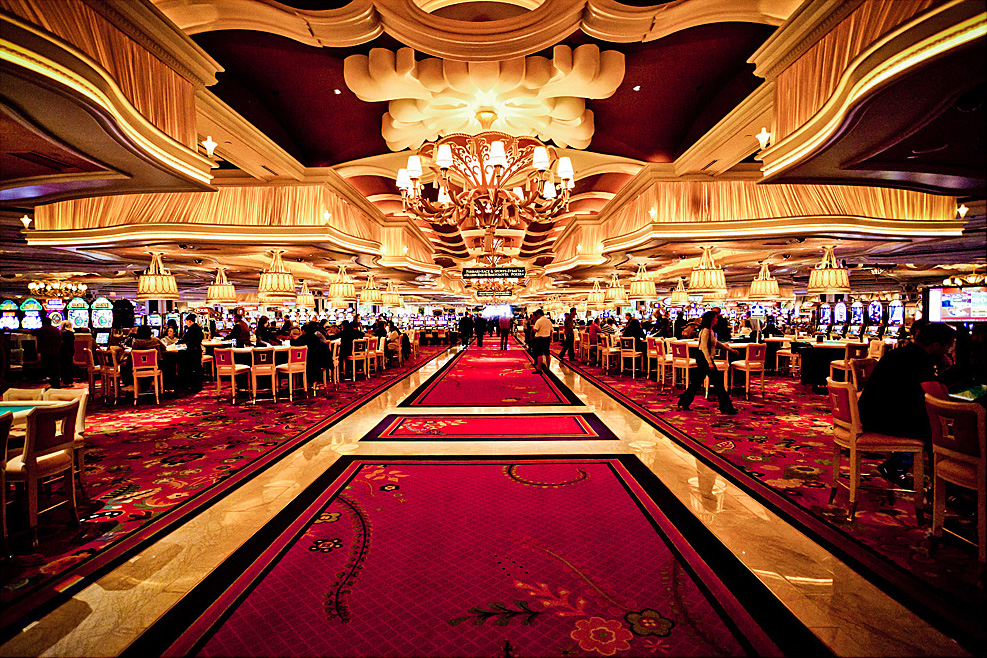
The manner in which Gambling Games Mirror our Human Existence

Casino games have long been a staple in human culture, delivering not just entertainment but a intriguing reflection of our aspirations, ambitions, and fears. From the turning reels of a slot machine to the skill-based strategies of poker, these games represent a variety of human emotions and experiences. At their core, casino games are more than a chance to win money; they are a snapshot of life itself, where risk and reward intertwine and fate can change in an moment.
As players gather around tables or sit in front of glowing machines, they engage in a tradition that transcends mere playing. These games reflect our innate desires for relationships, excitement, and the search for fortune. They also disclose deeper truths about human nature, such as our relationship with fate and the thrill of risk. In exploring casino games, we reveal not only the mechanics of play but also the rich tapestry of the human experience, showcasing our woven narratives of aspiration and reality.
The Psychology of Gambling
Wagering is intrinsically connected in the psyche of individuals, tapping into various emotions and wants. The excitement of taking risks is a core aspect that draws players in, be it it's excitement of spinning a roulette wheel or the anticipation of drawing a winning hand in poker. This adrenaline is often compared to other forms of thrill, as the unpredictability of outcomes elicits a unique psychological response. Players often find themselves entranced by the possibility of winning big, leading to an irresistible draw toward gambling games.
Another, a crucial component of the psychology behind gambling is the concept of hope and aspiration. Participants often indulge in dreams of financial freedom and the luxurious lifestyle that can accompany winning. This optimism fuels their ongoing participation in casino games, as it provides a sense of meaning and the belief that a transformative win could be just one bet away. The story of overcoming odds and achieving success resonates with many, reinforcing their dedication to play and engage with these games.
Finally, social aspects play a significant role in gambling psychology. Gambling venues are designed to promote social interaction, where players gather to share the journey of wins and losses. This communal aspect not only amplifies enjoyment but also affects behavior, as individuals often mimic the actions of others in their vicinity. The collective approval found in mutual thrill can magnify the emotional experience, making casino games a mirror of not just personal desires but also shared involvement within the gambling community.
### Risk and Reward: A Double-Edged Sword
Casino games embody the delicate balance between danger and gain that resonates deeply with the human experience. ww88 The thrill of placing a bet is often accompanied by a rush of adrenaline, as gamblers are confronted with the possibility of striking it rich, yet cognizant of the potential to suffer losses. This bipartisan experience reflects a core aspect of life: the choices we make often come with inherent risks, and the chase for gain can compel us to embrace risks we might not normally consider. In this way, gambling activities reflect real-world choices, enticing players to risk not just their funds, but also their hopes.
The allure of big prizes and winnings fuels a wave of hope, encouraging gamblers to imagine a better future that could arise from a fortunate turn of the roulette or flip of a card. This positive outlook can compel individuals to engage in riskier behaviors, pushing them to push their boundaries in search of financial gain. However, just as in life, the consequences of these decisions can lead to both victory and loss. The narratives of both jackpot winners and those who have suffered everything at the tables demonstrate the random nature of luck and its consequential impact on our existence.
Ultimately, the interaction of engaging with casino games serves as a strong reminder of the human condition. Every session played is filled with the tension of uncertainty, as players weigh the gains against the dangers. This interaction not only highlights the excitement that comes with betting but also unveils the weaknesses that come with the longing for more. As we navigate the challenges of decision-making and consequence in both the casino and in life, we find that the search for benefit shapes our identities and journeys in profound ways.
Community and Loneliness in Gambling Culture
Casino culture is a special combination of social interaction and individual pursuit, reflecting the contrasts of individual experience. Gamblers often gather around tables, sharing in the thrill of the action, celebrating wins, and sympathizing over losses. This communal aspect is vital, as it establishes a sense of community and camaraderie among varied groups of individuals. Regular visitors to gaming establishments may build friendships and establish routines, turning the casino into a second home where they experience linked to a larger community of players.
However, the appeal of casino activities can also lead to isolation. As players become engrossed in the thrill of playing, they may isolate from personal relationships or neglect to interact with the environment outside the casino. For some, the pursuit of a jackpot can distract from real connections, leading to isolation. The situation of being among others yet feeling solitary is not rare, as the attention shifts from shared enjoyment to the private concerns of each player’s journey.
This interaction of community and isolation creates a rich tapestry that defines gaming atmosphere. It highlights the complexity of human interactions, where joy and despair coexist. Casinos serve as both a sanctuary for social interaction and a platform for individual challenges, demonstrating how deeply entwined our yearning for companionship and the individual quest for wealth can be. In navigating this landscape, players confront their own narratives—seeking both the rush of the wager and the fellowship of other gamblers, ultimately reflecting the broader spectrum of individual experience.